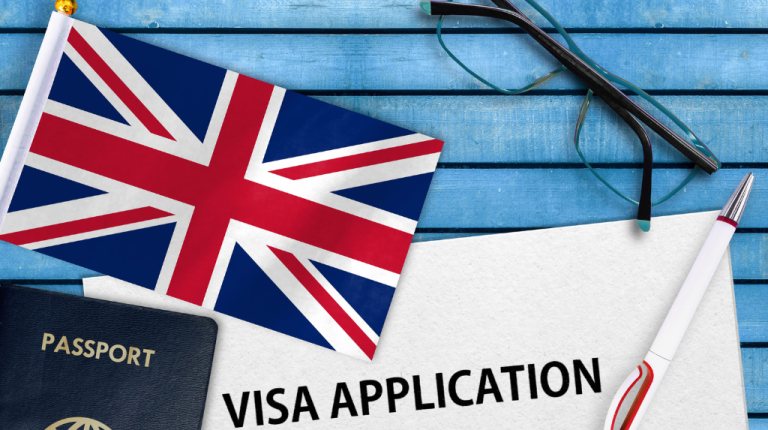Your Essential Guide to UK Spouse Visa Requirements: Bringing Your Loved One Home
Dreaming of building a life together in the United Kingdom with your beloved partner? The UK Spouse Visa is the pathway to making that dream a reality, allowing spouses, civil partners, or unmarried partners of British citizens or settled persons to live, work, and study in the UK. Navigating the application process can seem daunting, but with the right information, it’s a journey you can confidently embark on.
This comprehensive guide will break down the essential requirements for a UK Spouse Visa, offering clarity on everything from financial thresholds and English language proficiency to necessary documentation and the application process itself. Our goal is to empower you with the knowledge needed to prepare a robust application, bringing you one step closer to reuniting with your partner in the UK.
Who is Eligible for a UK Spouse Visa?
Before diving into specific requirements, it’s crucial to understand who qualifies for a UK Spouse Visa. This visa is designed for individuals who are in a genuine and subsisting relationship with a partner who is either a British citizen, settled in the UK (holds Indefinite Leave to Remain), has refugee status or humanitarian protection, or is from the EU, Switzerland, Norway, Iceland or Liechtenstein and has settled status under the EU Settlement Scheme.
Your relationship must fall into one of the following categories:
- Married or Civil Partner: You must be legally married or in a civil partnership.
- Unmarried Partner: You must have been living together in a relationship akin to marriage or civil partnership for at least two years prior to the application.
Both you and your partner must be over 18 years old at the time of application.
Meeting the Financial Requirement: What You Need to Know
One of the most significant hurdles for many applicants is the financial requirement. The UK Home Office mandates that the sponsoring partner (or both partners jointly, if the applicant is already in the UK with permission to work) must demonstrate a minimum gross annual income of £18,600. This threshold increases if you have dependent children who are not British citizens or settled in the UK:
- £18,600 for the applicant and sponsor.
- £22,400 for one dependent child (includes the £18,600).
- An additional £2,400 for each subsequent dependent child.
This income can come from various sources, including employment, self-employment, non-employment income (like property rental), pensions, or cash savings. You must provide clear evidence of this income over a specified period (usually 6 to 12 months, depending on the source).
Cash savings can be used to meet part or all of the requirement, but only savings above £16,000 are counted, and they must have been held for at least six months prior to the application. The calculation for savings is complex, so seeking professional advice is often beneficial.
Proving Your English Language Proficiency
Unless you are exempt, you will need to demonstrate a certain level of English language proficiency. This ensures you can integrate into UK society and communicate effectively.
You are exempt from this requirement if you are a national of a majority English-speaking country (e.g., USA, Canada, Australia, New Zealand, Ireland) or if you have a degree or academic qualification taught in English and recognised by UK NARIC (now ECCTIS) as being equivalent to a UK bachelor’s degree or higher.
If not exempt, you must pass an approved English language test at a minimum of CEFR Level A1 in speaking and listening. The test must be taken at an approved test centre. It is crucial to ensure the test provider and centre are on the Home Office’s list of approved providers, as tests from unapproved centres will not be accepted.
Accommodation and Genuine Relationship Evidence
You must prove that you will have adequate accommodation in the UK for yourself, your partner, and any dependent children, without needing recourse to public funds. This means the accommodation must not be overcrowded or fall below public health regulations. Evidence can include a tenancy agreement, property deed, or a letter from the property owner.
Crucially, you must also provide compelling evidence that your relationship is genuine and subsisting. The Home Office takes this very seriously. Examples of evidence include:
- Your marriage or civil partnership certificate.
- Joint bank accounts, utility bills, or tenancy agreements.
- Photographs of you together over time, especially at significant events.
- Evidence of communication (e.g., call logs, WhatsApp messages, emails) if you have spent time apart.
- Birth certificates of any children you share.
The more evidence you can provide to paint a clear picture of your shared life and commitment, the stronger your application will be.
The Application Process: Steps to Follow
The application process typically involves several key stages:
- Complete the Online Application Form: This is done via the UK government’s official website. Be thorough and accurate.
- Gather Required Documents: Based on your specific circumstances, you’ll need to compile a comprehensive set of documents proving all eligibility criteria (identity, relationship, financial, English language, accommodation). A detailed checklist is usually provided during the online application.
- Pay the Application Fee and Immigration Health Surcharge (IHS): Both are significant costs and must be paid in full at the time of application.
- Book and Attend a Biometrics Appointment: This involves providing your fingerprints and a digital photograph at a visa application centre.
- Submit Supporting Documents: You will usually upload your documents online or submit them in person at your biometrics appointment.
Applications made from outside the UK are typically processed within 2-3 months, though priority services may be available for an additional fee. If applying from within the UK (switching from another visa category), processing times can vary, but generally fall within the 8-week standard or potentially longer during busy periods.
Conclusion
Applying for a UK Spouse Visa is a detailed process that requires careful attention to every requirement. While it can feel overwhelming, understanding each step and preparing thoroughly will significantly increase your chances of a successful outcome. Remember that each case is unique, and sometimes, professional legal advice can be invaluable.
Don’t let the complexity deter you from pursuing your dream of living together in the UK. With diligent preparation and a clear understanding of what’s expected, you can navigate this journey successfully. Take the first step today by reviewing your circumstances against these requirements.






